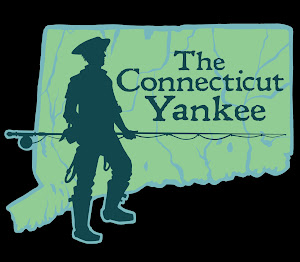I was very blessed in 2015 between watching my beautiful daughter grow, landing a new job and finishing grad school. While this past year won't be
remembered for the most time I've ever spent on the water, I sure as hell made the most of each trip. Below is a look back at some angling highlights from a memorable 2015.
FRESH: The balmy winter weather we've been experiencing lately makes me
appreciate 2015's ice season all the more. Friends and I had a blast in the
Adirondacks jigging up lake trout and enjoyed great opportunities back home as well, like rare late-ice trips to Connecticut's largest lake.
Spring brought with it our cherished Opening Day camping trip, strong mayfly hatches and several quality
trout to the net. I also tagged along on a fun carp excursion on the Connecticut River, a pike float on the upper Housatonic and a small stream jaunt in the mountains. In the fall, I paid a few visits to my favorite
reservoir for a handful of keeper walleye and hefty smallmouth. To close the year, I floated a river I'd never been to before and hooked (and lost!) a trout that will keep me going back.






SALT: What I'll remember most about the 2015 saltwater season was the copious amounts of menhaden in Long Island Sound and its tributaries. It wasn't limited to adult bunker either; for the first time in a long time, we experienced an incredible display of peanut bunker in our local waters, which helped attract all sorts of marine life from Humpback whales to a memorable run of false albacore. Speaking of false albacore, an unforgettable memory from this past year was catching a late-October albie five minutes from my home, in a shirt and tie before work no less! I also was lucky to witness some amazing bluefish blitzes, land a few nice bass from shore, and catch my first keeper fluke in a kayak.



















































.jpg)

























